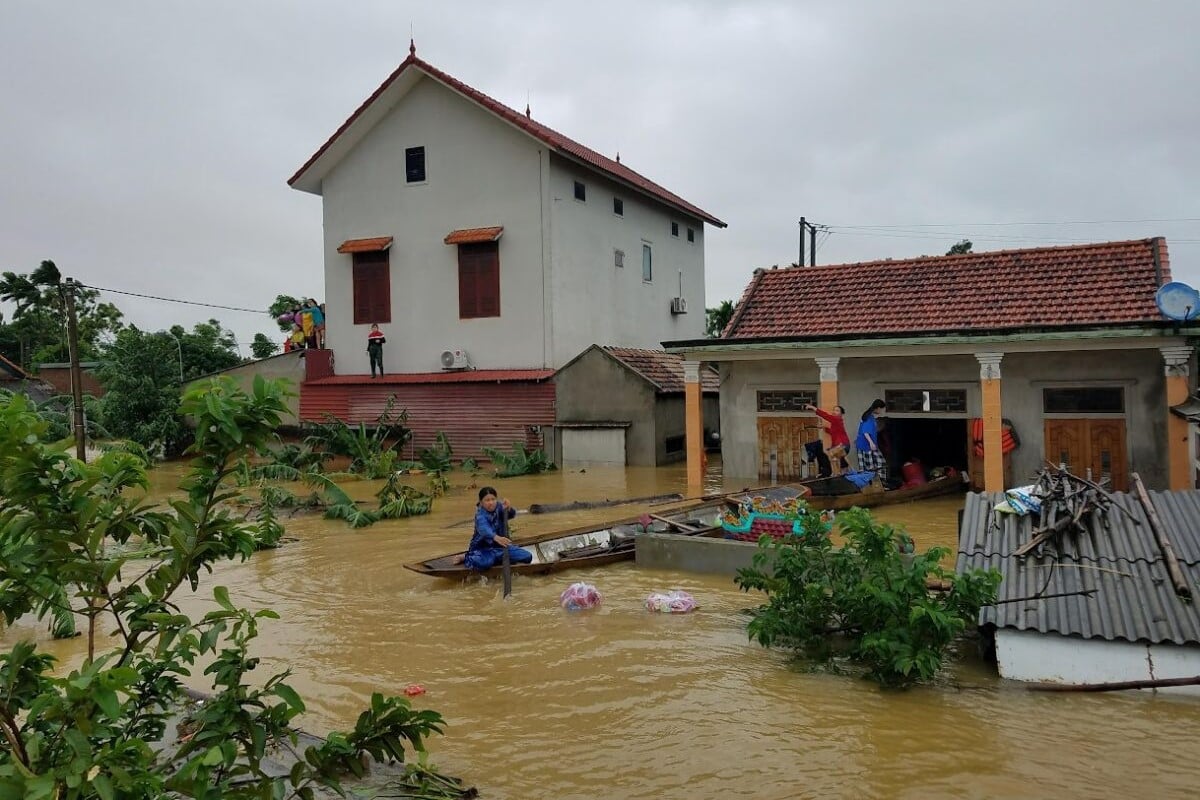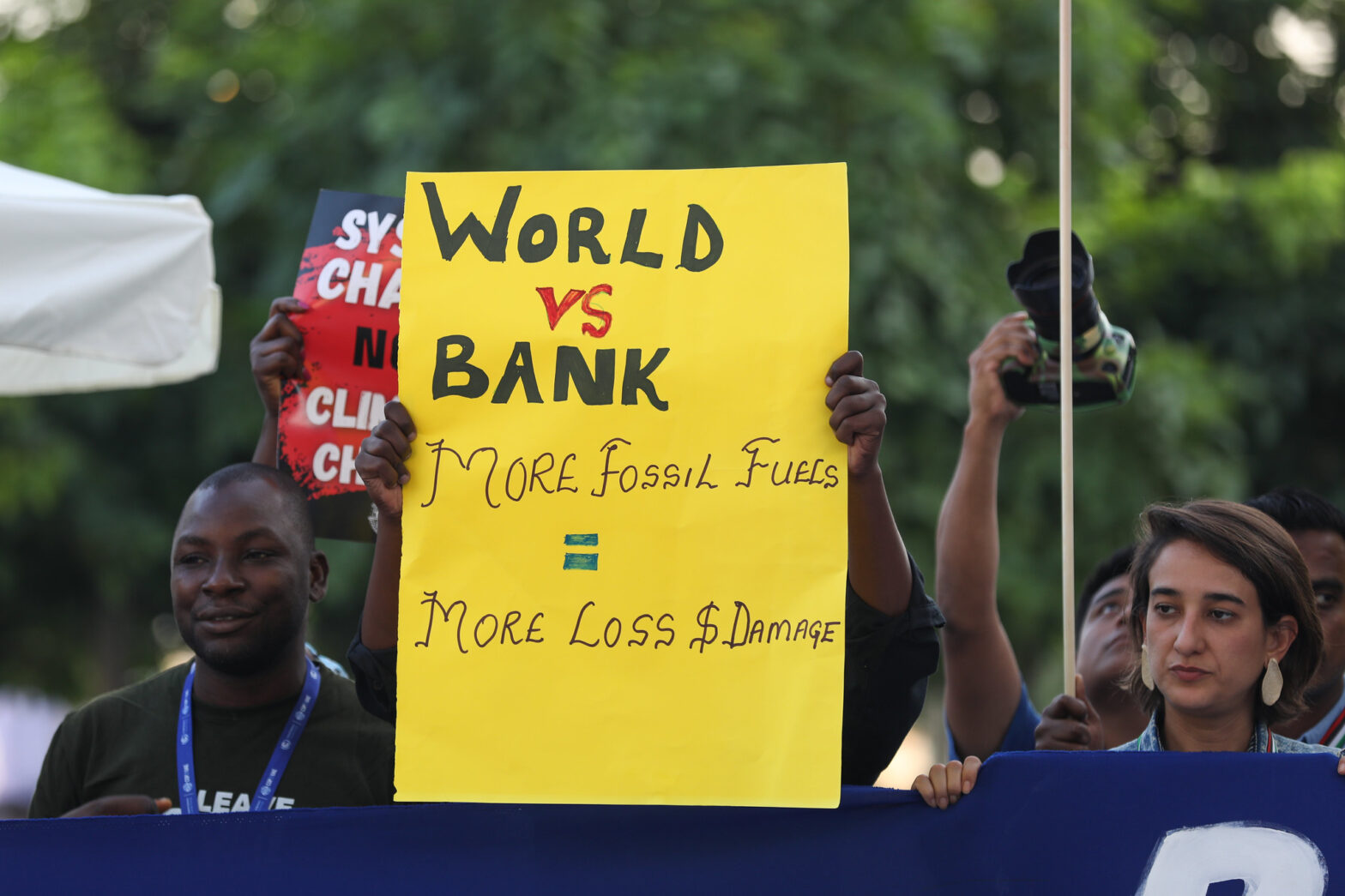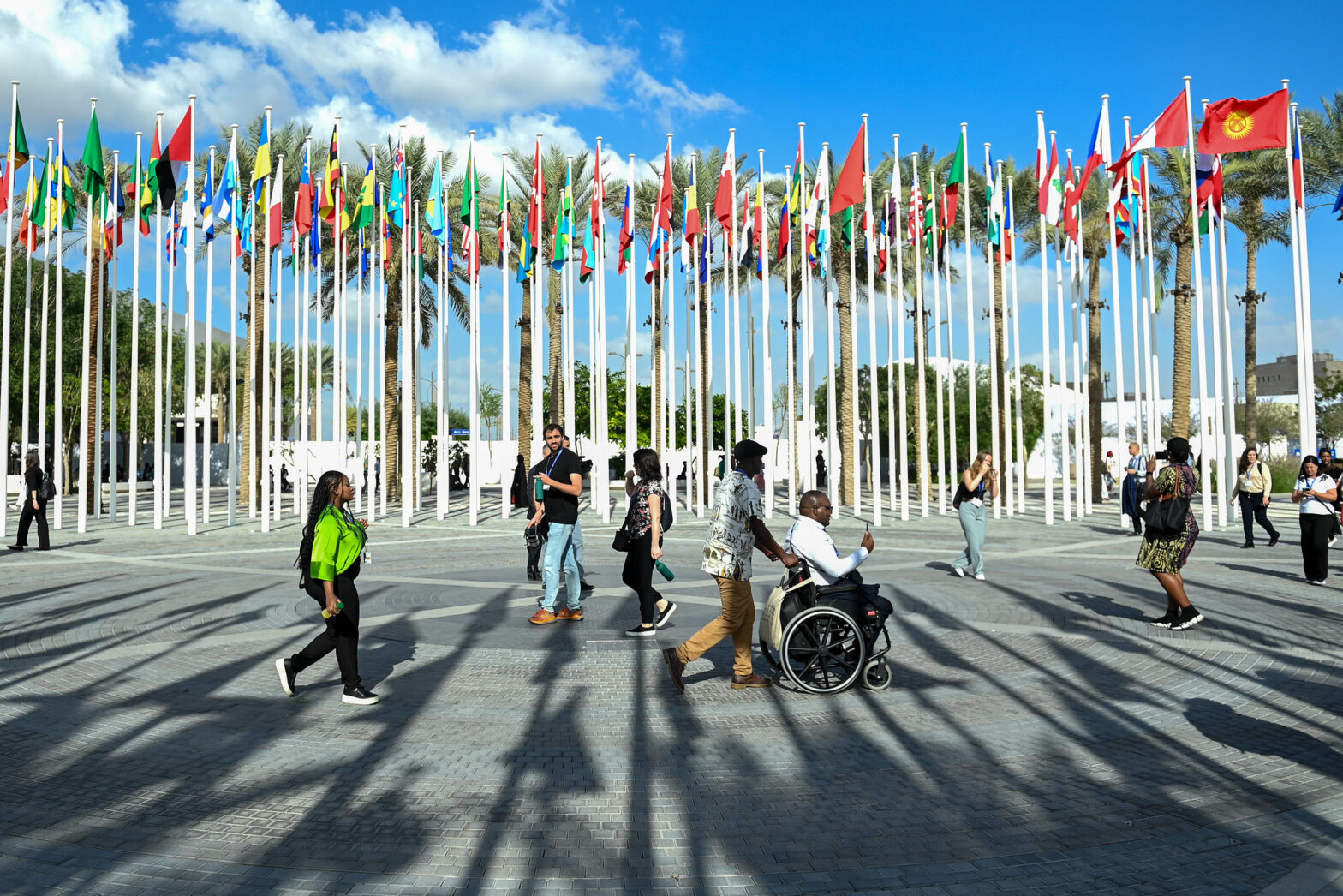DUBAI, UNITED ARAB EMIRATES – Doubling finance for climate adaptation is one of the key outcomes at COP28. But the question remains over whether these funds will find their way to reach the Mekong communities on the climate frontline, especially with the region’s limited freedoms hindering effective and just climate solutions.
Representing the challenges faced by the indigenous Karen people in Thailand, Pirawan Wongnithisathaporm arrived at COP28 in Dubai with a call for world leaders to recognize the voices of indigenous and marginalized people in the climate negotiations.
Originally from the country’s northern Chiang Mai province, she has witnessed her community dealing with aggravating climate impacts. Her community also plays a critical role in protecting forests that strengthen climate resilience and sequester carbon dioxide, the main greenhouse gas warming the atmosphere.
But Pirawan, who is also representing the Asia Indigenous Peoples Pact Foundation, has rarely seen any climate finance reach local communities which use their own resources to cover losses and damages from climate impacts, especially the severe floods and drought that have plagued the Mekong region over the past decade.
The International Institute for Environment and Development’s research found that less than 10% of funding committed under international climate funds was directed at the local level between 2003 and 2016.
Though all five Mekong countries – Cambodia, Laos, Myanmar, Thailand, and Vietnam – ratified the United Nations Declaration on the Rights of Indigenous Peoples, indigenous people are mostly not recognized on the ground and continue to face discrimination in development decisions.
“If you are not visible, how can you be visible at the policy level?” asked Pirawan during a side event at COP28.
“Both Nationally Determined Contributions and adaptation plans will fail because it’s not inclusive and lacks participation. The first step [to tackling climate change] will be a mistake if you don’t include everyone. It’s always come from the top and down to us.”
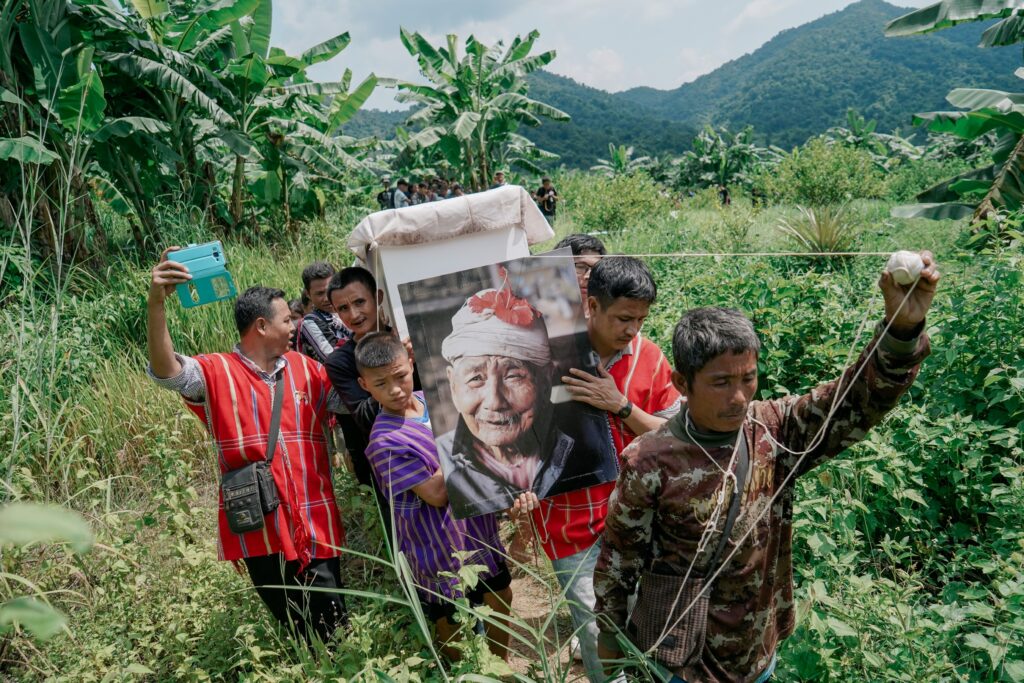
Since the start of COP28, many wealthy nations have pledged up to US$726 million for loss and damage and $165 million for adaptation funds.
“There were millions of pledges made in the first week of COP28, but these millions are nothing but an empty promise meant to distract and pacify us,” said Wanun Permpibul, the executive director of Climate Watch Thailand.
“The important question is how these numbers will translate to genuine change to the lives of people affected by the climate crisis. As in the past, climate finance has never truly reached communities and translated to real solutions.”
Mismatching needs
A mechanism to transfer climate funds relies heavily on the interaction between the nations’ governmental bodies and international financial entities.
To get the funds, the governmental organizations must submit proposals to the fund operators. The inclusion of community projects is based on the government’s priority areas and considerations, and in many cases, these do not always match the needs of local communities.
This mismatch is observed in the establishment of voluntary carbon markets in the Mekong region, where local communities widely criticized the projects for a lack of transparency and assurances of fair shares in carbon credit selling.
Thailand has received financial support and knowledge transfers from multiple organizations, including the World Bank’s US$3 million project to set up a mechanism for the carbon credit trade.
In the past few years, the country has started many forest carbon credit projects, mainly in the “community forests” where local communities guard and care for the forests to preserve water and sources of food.
One example was last year’s launch of carbon offset projects in mangrove forests scattered along the southern coast of Thailand, covering 25,000 hectares in total.
Greenpeace Thailand revealed that about 35 private companies had been invited by the Thai government to run conservation projects in these forest areas to generate carbon credits, through which each company would get a 70% share of the credit sales. The community would get about 20% and the government 10%.
This led to local communities calling for transparency in climate action, as they don’t have a say and get a fair share in the projects. They have also called for financial resources to initiate projects that answer their needs to create long-term climate resilience.
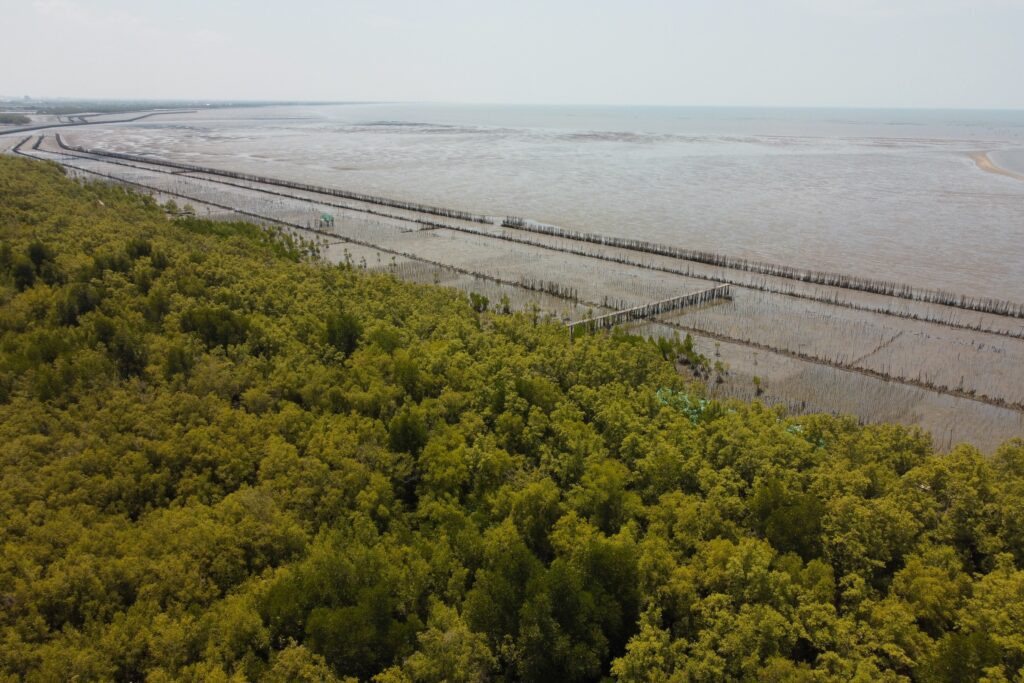
“The intergovernmental financial mechanism allows the state to legitimize their carbon offset projects, which can lead to conflicts between state and the local community against the projects,” said Pramote Polpinyo from P-move, a civil society group advocating for land rights.
He added that this conflict would likely escalate in countries with limited freedoms and public participation.
That links to the low levels of democracy in most of the Mekong countries. Democracy Index 2022 conducted by the Economist Intelligence Unit ranked Myanmar, Laos and Vietnam 166th, 159th, and 138th among 167 countries and territories most democratic. Cambodia and Thailand are ranked 121st and 55th, respectively.
A land conflict in a climate project was also reported in the southwestern part of Cambodia, where farmers accused rangers from US non-profit group Wildlife Alliance of destroying their crops and homes in the Southern Cardamom forest conservation project – backed by the United Nations REDD+ framework that aims to reduce emissions through forest management.
The project, run in collaboration with the Cambodian government, generated carbon credits that Wildlife Alliance sold to companies including Air France and Gucci, according to a recent investigation conducted by SourceMaterials. The NGO group denied any human rights violations linked to its project.
Only jargon
Titi Soentoro of Aksi! for gender, social and ecological justice, a civil society group promoting fair climate policy, said one of the challenges preventing local communities from accessing climate finance is the financial mechanism criterion.
For a micro-size project under the Green Climate Fund, the UNFCCC’s financial mechanism to assist developing countries in climate adaptation and mitigation, the amount of requested money can reach up to $10 million – an amount the community cannot handle.
Applying for the Global Environment Facility fund requires applicants to have backup accreditors, many of which are governmental offices or international institutions unreachable by local communities.
“We want to have a fund that is based on the needs of the community, and with the community managing it. They decide what they want,” said Soentoro. “But we need to have a system that works for them. Otherwise, it will be only jargon that we do it for the people but in the end, they don’t get the funds.”
One of the solutions is to directly engage civil society groups that have networks on the ground and can identify people who need the funds the most.
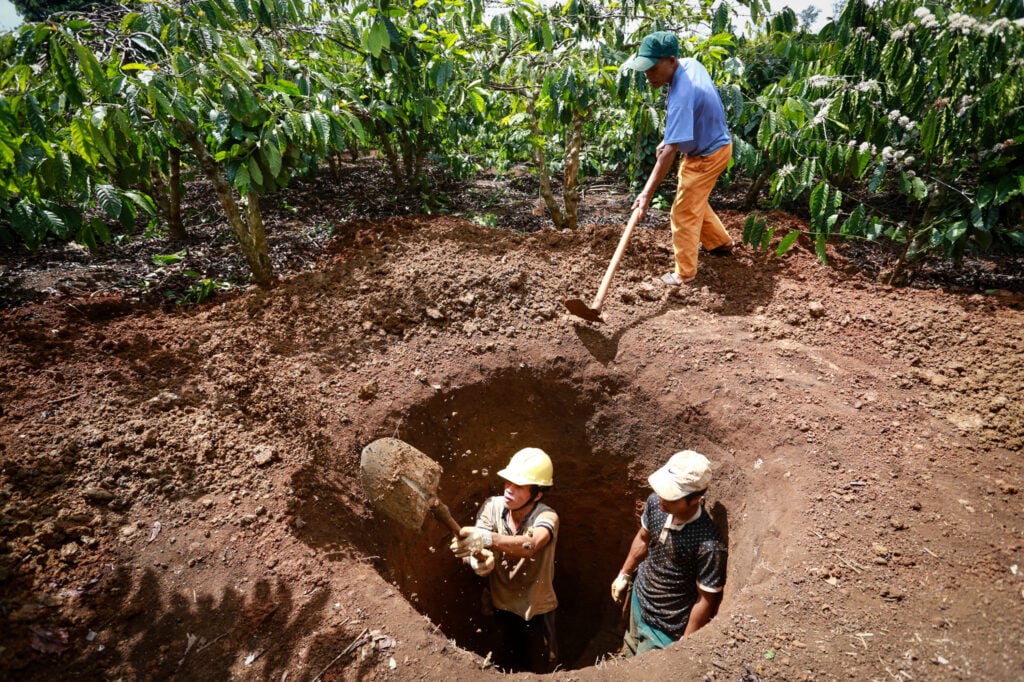
On another challenge, Soentoro pointed out that there was limited access to information about climate finance at the local level, including local government, municipalities and communities.
“They know about climate impacts. However, they may not be aware that there are parties responsible for climate change. If they know, if the information is given to them, they will organize themselves to demand the climate fund because it’s their money.”
Stéphane Hallegatte, a Senior Climate Change Adviser at the World Bank, said the bank emphasized the importance of getting money to the right people. But the success of this vision relies on national policies, too.
“On the supply side of money, combined with the right policy in the country, helps to ensure the countries have plans to get money to the hands of the right persons. This is always going back and forth between finance provision and better policy on the ground,” said Hallegatte.
The story was produced as part of the COP28 Climate Change Media Partnership Reporting Fellowship co-organized by the Internews’ Earth Journalism Network and the Stanley Center for Peace and Security.
Smanachan Buddhajak contributed to the reporting of this story.


